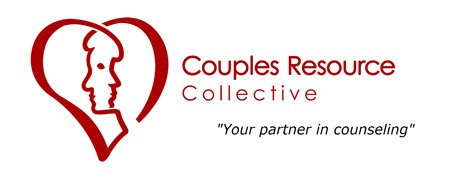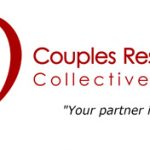Substance Abuse
Substance abuse is when you take drugs that are not legal. It’s also when you use alcohol, prescription medicine, and other legal substances too much or in the wrong way.
Substance abuse differs from addiction. Many people with substance abuse problems are able to quit or can change their unhealthy behavior. Addiction, on the other hand, is a disease. It means you can’t stop using even when your condition causes you harm.
ANYONE COULD BE STRUGGLING WITH SUBSTANCE ABUSE
According to the latest information collected by the Substance Abuse and Mental Health Services Administration(SAMHSA) in the National Survey on Drug Use and Health (NSDUH), about 30.5 million Americans aged 12 or older were using illicit drugs in the last month. This equates to roughly 11.2 percent of people aged 12 or older. Of those who admitted to have used illicit drugs in the last month, approximately 26 million people used marijuana, 3.2 million people abused prescription pain relievers and 2.2 million people used cocaine.
A majority of those surveyed used drugs recreationally or for non-medical reasons, but many others used them because they were dependent on the substance or were struggling with addiction. When substance abuse begins to take over your life, the best course of action is to seek help. If you are worried about your drug use or that of a loved one, there are service that can help you make the change. Call the National Drug Helpline now to take the first step.
Addiction is complicated, and some people are even more susceptible to addiction and dependence. The following factors may increase your likelihood of having a drug or alcohol addiction:
- Family members and relatives who have struggled with addiction
- An abusive, neglectful or traumatizing upbringing
- Mental health disorders
- Drug or alcohol use early in life
Many people from different walks of life can struggle with addiction regardless of whether or not these risk factors are prevalent in their lives. Addiction does not discriminate. Calling a substance abuse hotline for yourself or for a loved one can be a difficult decision to make. It’s not always easy admitting that you or a loved one is struggling with an addiction. Just know that addiction can happen to anyone at any point in life. Some substances have a risk of being addictive, including commonly prescribed medications and painkillers. The opiate and opioid epidemic our nation is facing is due in part to the medications and painkillers that are being prescribed to everyday people.
Also, substances such as alcohol are legal and are constantly marketed to adults. Alcohol is commonly abused due to the easy access and the lack of stigma around binge drinking and partaking in social events such as happy hours. Alcohol may be the most difficult substance addiction to diagnose due to the close ties it has to social events. Alcoholism is actually very common and over consumption could have serious adverse effects on health. If you feel that you or someone may be struggling with addiction, call a substance abuse hotline.
YOU CAN PLAY A ROLE IN SOMEONES ADDICTION RECOVERY
Drug and alcohol addictions can affect your personal relationships and make it difficult to focus on work or school. Many people have their health, finances, relationships, careers and lives turned upside down by drug addiction. This is why a drug help hotline is such an important resource. If you or a loved one is struggling with substance abuse, it may be time to get help from a drug recovery program. Calling a national drugs helpline is a great way to start your recovery journey. If you aren’t ready to call, you can check out some of the free resources found on the CDC’s website.
It’s understandable that this is a difficult decision. You may have never thought that you would be calling a drug hotline, but it may be the best decision you can possibly make. A simple phone call can change a life. This drug addiction hotline is staffed with friendly and understanding people who are here to help. The NDH is here to talk you through anything you may be struggling with. Your call is anonymous and if you are ready to seek treatment for yourself or for a loved one, they can help you to navigate your options. They take in calls from across the nation and are dedicated to helpline anyone who may need some guidance. Addiction is difficult to beat single handedly. Give us a call today and let’s get through this together.
ADDICTIONS CAN BE BEATEN. START YOUR RECOVERY JOURNEY WITH A CALL.
When drugs are used over periods of time, the brain changes in response to prolonged exposure to those drugs. Cravings tend to get stronger and withdrawals tend to get worse. This physiological reality makes quitting very difficult for anyone. Thanks to modern day drug and alcohol treatment, there is no reason to go through the recovery process alone. These programs provide people with the support that they need to rehabilitate and can be easily accessed with a call to a drug support hotline or a national drug rehab hotline.
Many people think that they have to reach rock bottom before they seek help. This is a common and dangerous misconception. The truth is that it is never too soon to get help. The earlier substance abusers realize they may have a problem, the better the chances of success. As time goes on, continued substance abuse may make recovery a much longer and much more difficult process. Ultimately, prevention is the best solution to addiction, but for those who are currently struggling, the NDH is here to help.
If drugs or alcohol are causing problems in your life, or the life of a loved one, the time to get help is now. If you are concerned about the drug or alcohol use of a friend or family member, there is no reason to wait until their problem gets worse. The first step may be to call the national drug abuse hotline. Drug abuse is more common than you may think, so don’t feel like you are alone. Thousands of people across the nation struggle with drug abuse everyday. So much so that there are major government organizations, such as NIDA, dedicated to drug abuse within our nation.
If you want to discuss treatment options, talk about how to approach someone you love that may be struggling with addiction, talk about rehab costs and paying, or just want to talk; then give the NDH a call today. The National Drug Abuse hotline number is free to call, anonymous and confidential. The journey toward recovery can start today with a simple phone call. Our phone number is found across our site, so feel free to call whenever you are ready.
CALLING AN ADDICTION HOTLINE
Making the call can be tough. Whether the call is for you or for a loved one, they understand that it can be one of the hardest moments of your life. They are there to talk you through your options. Whether this is your first time calling an addiction hotline, or you have gone down this path before, the NDH and other services like them are here to help. Addiction is a disease that can affect any type of person in any walk in life. Just know that you are not alone and there are others out there that are struggling with addiction as well. The stigma associated with addiction may make it difficult to talk to friends and family about substance abuse, but addiction helplines are there so you can talk to someone. Calling and talking is a great first step to recovery. There are 0 commitments when calling. Sometimes it’s good to hear yourself talk about the substance abuse struggles that you or a loved one may be facing to help organize your thoughts and feelings. Our national addiction hotline is here to take your call.
FIND HELP AND RECOVERY
There are multiple options for alcohol and drug recovery. You can find treatment programs that address specific drugs, programs that are tailored to people of different genders, programs that are faith based and many others. The diversity of treatment options available means that you can find one that fits your exact needs. If you would like to speak to someone to help better understand your options, you can call a drug rehab helpline or a drug treatment hotline.
There are two primary options when it comes to recovery, an inpatient recovery program or an outpatient recovery program. If you decide to be admitted into an outpatient recovery program, you can simultaneously attend counseling, therapy and treatment while continuing to live your life at home. If you decide to be admitted into an inpatient program, you will have the opportunity to step away from life for a little bit, so that you can fully focus on your addiction recovery. Understandably this choice is a difficult one, but the NDH is here to help. You can call our addiction recovery hotline to discuss the differences between inpatient and outpatient recovery.
If you have already made a decision about inpatient or outpatient rehab, but are looking for a program or facility that treats a certain type of addiction, there is a solution. The National Drug Helpline offers the following national addiction hotline numbers for those who may be struggling.
ALCOHOL HELPLINE
Although alcohol is commonly consumed and used in social situations, it can be very addictive. Alcohol is very difficult to avoid considering wine is enjoyed with meals, champagne is used to celebrate special occasions and beer is usually around when watching the big game with friends. Thousands of people across the nation struggle with alcoholism, but they may not know it. If you or a loved one is consuming an excessive amount of alcohol, is using alcohol to self medicate or just feels dependent on it is some way; please call the national alcohol helpline. They can talk about the signs and symptoms of alcoholism to help determine if treatment is an option that may need to be considered. They also have an alcohol hotline that can help you to organize your thoughts regarding this difficult to discuss matter. The alcoholic helpline is there to find the right solution for you or for your loved one.
COCAINE HELPLINE
Cocaine is an illicit drug that can have serious long term effects on your health. Cocaine use may be difficult to talk about to friends and families due to its use being illegal. This doesn’t mean you can’t call this national cocaine hotline to get help. Their cocaine addiction helpline ensures that your information is kept private. Even the smallest amount of cocaine use can lead to addiction, which is why the NDH is here to get you the help you want. Call their cocaine addiction hotline today to speak to someone who cares and who understands the difficulties of addiction.
ECSTASY HELPLINE
Ecstasy use is often synonymous with the “party scene”. Although, not very physically addictive, the sense of euphoria can become addicting to the point that you feel like you need ecstasy to feel good. The comedowns are dangerous and can lead to deep levels of depression. If you or a loved one feels like ecstasy use may be affecting your life, give these folks a call on their dedicated ecstasy helpline. Speak to someone that can help talk you through your experiences and help you to better determine if treatment is required. Their ecstasy hotline phone number is staffed day and night to ensure that help is available when you need it.
HEROIN HELPLINE
Heroin is an illicit drug and is very dangerous. Not only is it extremely addictive, but it can heavily impact your health. Heroin use can kill you, which is why anyone who is struggling with heroin addiction should call the heroin helpline. This heroin hotline phone number is staffed with friendly advisors who are here to help you or a loved one battle this highly addictive substance. This national heroin hotline is anonymous and can be called at anytime. Calling our heroin addiction hotline can save a life, so don’t wait any longer to take a step in the right direction. There are many heroin hotline numbers on the web, but the National Drug Helpline is the one to call if you need to talk to anyone about heroin use.
MARIJUANA HELPLINE
Marijuana is becoming more and more prevalent in our society as the years go on. Countries across the world are beginning to legalize its use and multiple states across the nation have already legalized its use. CBD is becoming commonplace in consumer products and cannabis companies are beginning to arise. Although the use of marijuana and its effects on the human body are widely debated, the fact remains that it is abused across the world. Although, not physically addictive, the “high” associated with marijuana use can be very behaviorally addictive. Marijuana use makes people feel good, to the point that constant use may seem necessary to cope with life’s everyday situations. If this sounds like you or a loved one, call this marijuana hotline, it’s here for anyone who thinks they might smoke a little too much weed.
METH HELPLINE
Meth is another very addictive and controlled substance that is commonly misused. Meth, also known as methamphetamine, is actually found in many prescription drugs and medications. Although the stigma of “meth heads” exists, most people suffering from methamphetamine addiction are people you wouldn’t expect. An addiction to methamphetamine could have been an accidental one, due to using a prescription outside of its intended purposes. If you feel that you or a loved one may be abusing methamphetamine, call the National Drug Helpline’s meth helpline. They can help you to determine if treatment is necessary. Call their meth hotline now to speak to a caring representative.
METHADONE HELPLINE
Although methadone is often used to treat serious narcotic addictions, it can actually be addictive itself if abused. If you are struggling with methadone addiction, or have done your research and feel like you may need methadone to treat an addiction, call the NDH methadone hotline. Although, the NDH is not qualified to prescribe methadone to anyone, they can match you with a professional rehab facility that provides methadone treatment for addiction.
OPIATE HELPLINE
Our nations biggest crisis that continues to grow every year, opiate addiction is becoming very common. Opiate addictions are so common due to powerful prescription drugs offered in our country. Something as commonplace as the removal of wisdom teeth can lead to the prescription of a very powerful and very addictive opiate based painkiller. Opiates are found in commonly prescribed painkillers and can end up in the hands of just about anyone. The stigma of opiate use and abuse is much lower due to the fact that these medications are prescribed to us by doctors that we trust. However, continued use or abuse of opiates can lead to very powerful and very deadly addictions. If you or a loved one is suffering from this type of an addiction, please call the NDH opiate addiction hotline. Please do not wait to call since opiate abuse can be deadly.
SUBOXONE HELPLINE
Suboxone is another medication that can be used to treat narcotic addictions. Suboxone uses a combination of buprenorphine and naloxone to help treat addiction. Although it had good intentions, it can be abused. If you or a loved one needs help with suboxone abuse, or may be seeking the use of suboxone to treat an addiction, call this suboxone hotline now. The phone number is available to anyone who may have questions about the medication and its uses.
CALL THE NATIONAL DRUG HELPLINE TODAY
Substance abuse comes in many forms as you may have seen from the list above, but a lot of organizations/services are here for you. The national Drug Hotline can talk about any substance that you or a loved one may be addicted to. We know it is difficult, but start recovery today. A simple phone call can change a life. Dial 1-888-633-3239 to speak with someone who is there to help. Pick up the phone today and call the National Drug Hotline’s drug addiction hotline. They will be happy to speak with you!



